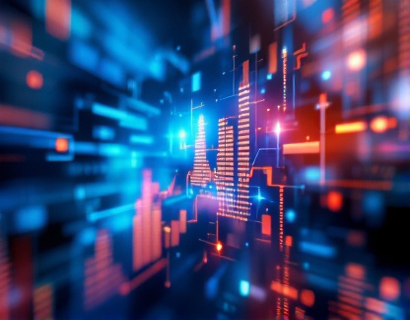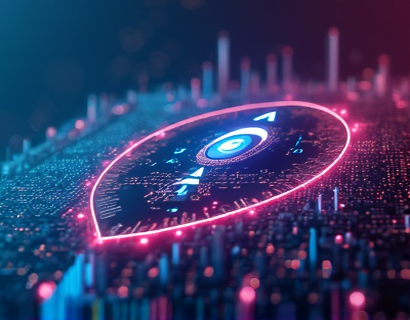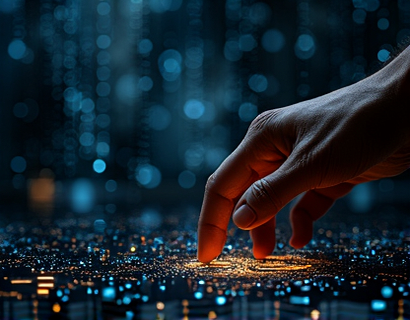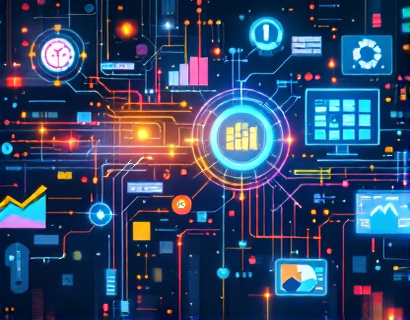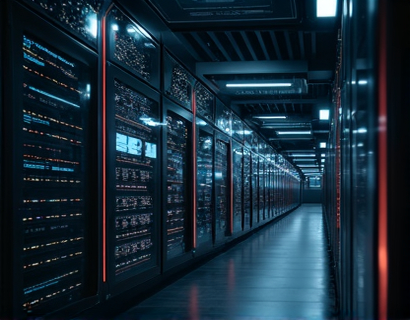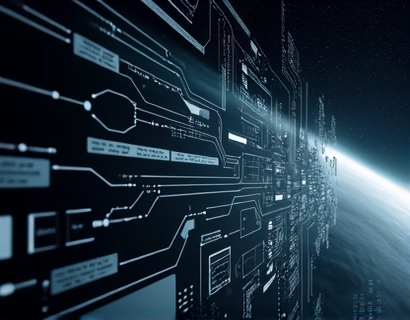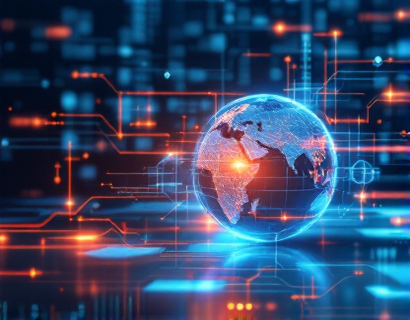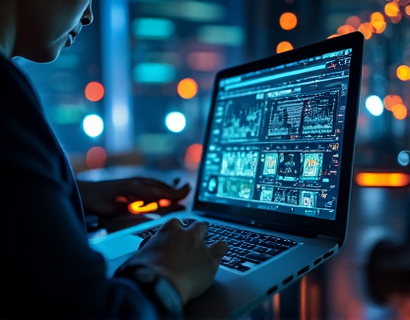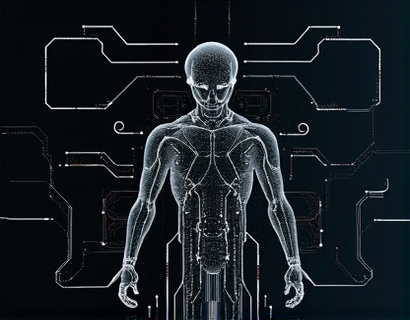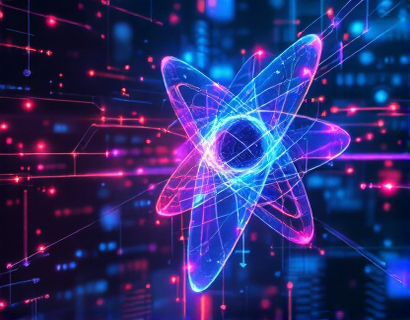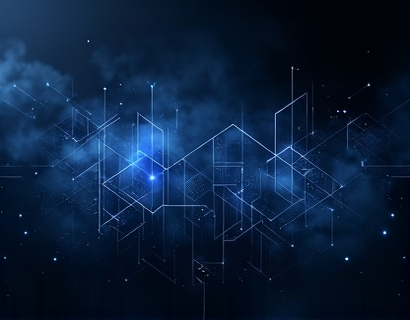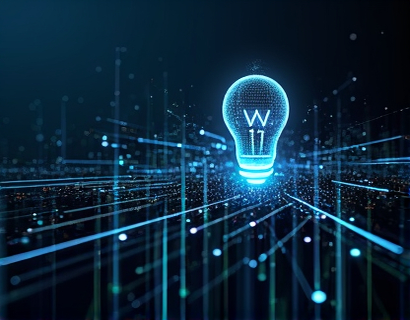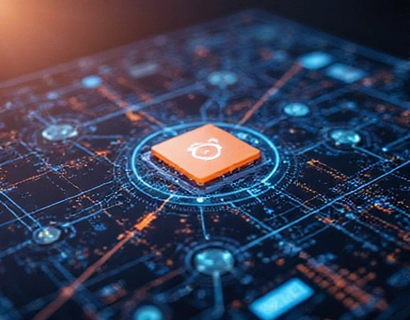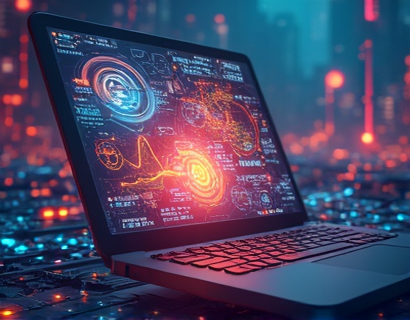Decentralized AI and Crypto: Transforming Ucosystem Applications for Enhanced Productivity and Innovation
The integration of decentralized technologies with artificial intelligence (AI) and cryptocurrency is ushering in a new era of digital innovation. This convergence is not just a technological advancement but a paradigm shift in how we approach productivity, security, and efficiency in our digital workflows. As we delve into this transformative space, it's essential to understand the core components and the profound impact they are having on various applications and services.
Decentralized applications, or dApps, operate on blockchain networks, which are distributed ledgers maintained by a network of nodes rather than a central authority. This decentralization ensures transparency, security, and resilience against censorship and single points of failure. When combined with AI, these dApps can process vast amounts of data, learn from it, and make intelligent decisions autonomously. The synergy between decentralized systems and AI creates a powerful toolset for enhancing productivity and driving innovation.
Cryptocurrency, the digital or virtual currency that uses cryptography for security, plays a pivotal role in this ecosystem. It serves as a medium of exchange, enabling transactions within decentralized networks without the need for intermediaries. The use of smart contracts, self-executing contracts with the terms directly written into code, further automates and streamlines processes, reducing the need for manual intervention and increasing efficiency.
The convergence of these technologies is revolutionizing various sectors, from finance and healthcare to supply chain management and beyond. In finance, decentralized finance (DeFi) platforms leverage AI to offer sophisticated trading algorithms, risk management tools, and lending services, all while maintaining transparency and security. These platforms empower users to manage their financial assets more effectively and access a broader range of services without traditional banking constraints.
In the realm of healthcare, AI-driven dApps can analyze medical data to provide personalized treatment recommendations, predict disease outbreaks, and optimize resource allocation. The decentralized nature of these applications ensures patient data privacy and security, while AI enhances diagnostic accuracy and treatment efficacy. This combination not only improves patient outcomes but also reduces healthcare costs and improves access to medical services.
Supply chain management is another area where the integration of decentralized AI and crypto is making significant strides. Blockchain technology provides an immutable and transparent ledger for tracking goods from production to delivery, ensuring authenticity and reducing fraud. AI algorithms can optimize logistics, predict demand, and manage inventory in real-time, leading to more efficient and cost-effective supply chains. Smart contracts automate payments and ensure compliance with contractual obligations, further streamlining operations.
The benefits of this technological convergence extend to the realm of creativity and content creation. Decentralized platforms powered by AI and crypto enable artists, writers, and creators to monetize their work directly, bypassing traditional gatekeepers. AI-driven tools can assist in content generation, editing, and distribution, while blockchain ensures fair compensation and ownership verification. This democratization of creative processes fosters innovation and provides new opportunities for artists and content creators.
One of the key advantages of decentralized AI applications is their enhanced security and privacy. Traditional centralized systems are vulnerable to data breaches and cyberattacks, whereas decentralized networks distribute data across multiple nodes, making them more resilient. AI algorithms can detect and mitigate threats in real-time, further bolstering security. Additionally, the use of zero-knowledge proofs and other privacy-preserving techniques ensures that sensitive information remains confidential.
Scalability is another critical factor in the adoption of decentralized AI and crypto solutions. Blockchain technology has historically faced challenges with transaction throughput and processing speed. However, advancements in layer 2 solutions, sharding, and more efficient consensus mechanisms are addressing these issues. These improvements enable decentralized applications to handle large volumes of data and transactions, making them viable for widespread use in various industries.
The development of decentralized AI models is also gaining momentum. Traditional AI models often rely on centralized data repositories and computational resources, which can be expensive and less secure. Decentralized AI models distribute the training and inference processes across a network of nodes, leveraging the collective computing power of the decentralized network. This approach not only reduces costs but also enhances model robustness and generalization by exposing AI systems to more diverse and representative data sets.
Moreover, the integration of AI in decentralized networks enables intelligent automation of various tasks. Smart contracts can be programmed with AI-driven logic to execute complex operations based on real-time data analysis. For instance, in the insurance industry, AI-powered smart contracts can assess claims automatically, reducing processing time and minimizing fraud. This level of automation not only increases efficiency but also enhances customer satisfaction by providing faster and more accurate services.
The future of decentralized AI and crypto applications holds immense potential. As technology continues to evolve, we can expect more sophisticated and user-friendly tools that bridge the gap between technical expertise and everyday use. Interoperability between different blockchain platforms and AI systems will become more seamless, allowing for a more integrated and cohesive ecosystem. This will enable developers to build more complex and versatile applications that leverage the strengths of both decentralized and AI technologies.
Education and community building will play crucial roles in the widespread adoption of these technologies. As more individuals gain a deeper understanding of decentralized systems, AI, and crypto, the demand for innovative solutions will drive further development and investment. Collaborative efforts between technologists, researchers, and industry experts will be essential in overcoming current challenges and unlocking new possibilities.
In conclusion, the convergence of decentralized AI and crypto is transforming the landscape of digital applications and services. By enhancing productivity, ensuring security, and fostering innovation, these technologies are paving the way for a more efficient, transparent, and user-centric digital world. As we continue to explore and harness the potential of this powerful combination, the future looks bright for those who embrace and contribute to this exciting field.




